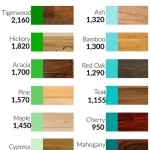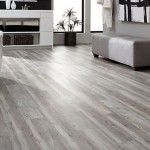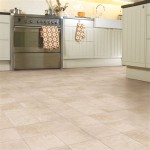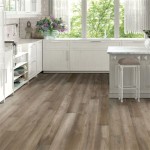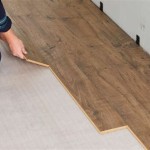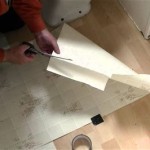Cork Flooring for Kitchens: A Guide to Enhanced Functionality and Style
Cork flooring has emerged as an increasingly popular choice for kitchens, offering a unique combination of practicality and aesthetic appeal. Derived from the bark of cork oak trees, cork boasts remarkable properties that make it an ideal flooring solution for this demanding space.
Durability and Resilience
Cork flooring is renowned for its exceptional durability and resilience. Its natural honeycomb structure, composed of millions of air-filled cells, provides inherent shock absorption, making it highly resistant to dents, scratches, and impacts. This resilience ensures that your kitchen floor can withstand the hustle and bustle of daily activities, including heavy foot traffic, dropped cookware, and accidental spills.
Water Resistance
Moisture is a common concern in kitchens, especially around sinks and dishwashers. While traditional wood flooring is highly susceptible to water damage, cork flooring boasts remarkable water resistance. The waxy outer layer of cork cells acts as a natural barrier against moisture, preventing penetration and subsequent warping or rotting. This water resistance makes cork flooring an ideal choice for kitchens with higher humidity levels.
Comfort and Warmth
Cork flooring offers exceptional comfort underfoot. Its natural cushioning properties provide a warm and yielding surface, reducing fatigue and strain on your legs and back. This makes cork flooring particularly suitable for kitchens where you may spend extended periods standing or walking.
Sound Absorption
The unique cellular structure of cork flooring also acts as an effective sound absorber. This can significantly reduce noise levels in busy kitchens, creating a more peaceful and comfortable environment. The sound-absorbing properties of cork flooring can also benefit adjacent rooms, reducing sound transmission through the floor.
Easy Maintenance
Cork flooring is remarkably low-maintenance, making it an ideal choice for busy kitchens. Regular sweeping or vacuuming will suffice for everyday cleaning. Spills and stains can be easily wiped away with a damp cloth. Unlike hardwood floors, cork flooring does not require waxing or polishing, saving you time and effort.
Sustainability
Cork flooring aligns with environmentally conscious design principles. Cork oak trees are not felled to harvest cork. Instead, the bark is carefully stripped, allowing the trees to continue growing. This process ensures the longevity of cork forests and promotes sustainability.
Additional Considerations
When selecting cork flooring for your kitchen, consider the following aspects:
*Thickness:
Thicker cork flooring offers enhanced durability and sound absorption. *Finish:
Choose between natural, stained, or printed finishes to complement your kitchen décor. *Installation:
Cork flooring can be installed as planks, tiles, or floating squares, offering flexibility in design and installation methods.In conclusion, cork flooring offers a winning combination of durability, water resistance, comfort, sound absorption, easy maintenance, and sustainability, making it an exceptional choice for kitchens. Its unique properties and natural appeal can enhance the functionality and style of your cooking and dining space.

Silver Birch 1 4 6mm Cork Glue Down Tile Gsb6 Icork Floor

Can You Use Cork Flooring In A Kitchen Portuguese Treasures

Kitchen Flooring With Natural Cork Icork Floor

Classic Cork Tile The Habitus Collection

Cork Kitchen Flooring Choosing The Right Floor For Your

Is Cork Flooring Right For Your Kitchen

A Cork Floor In The Kitchen Young House Love

32 Cool Cork Flooring Ideas For Maximum Comfort Digsdigs

Waterproof Cork Flooring Look

6 Cork Kitchen Flooring Ideas That Will Convince You To Make The Switch Hunker Natural

